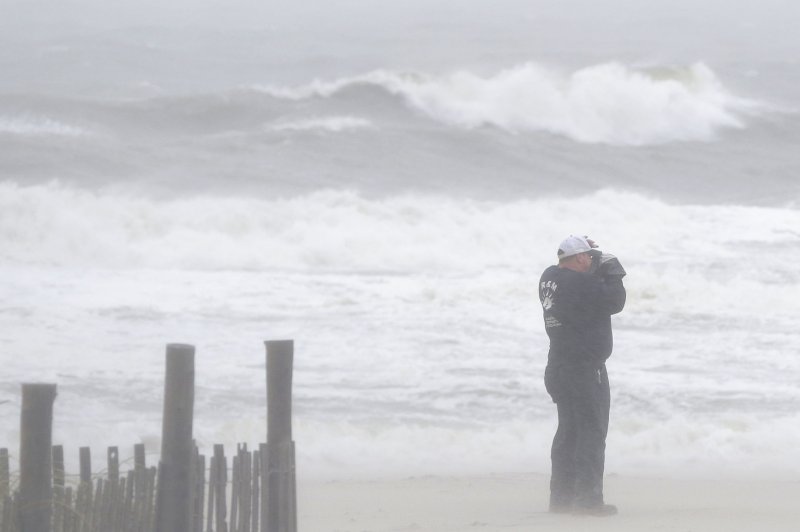New research has revealed hotspots of accelerated sea level rise along the Atlantic coast. Photo by John Angelillo/UPI |
License Photo
Aug. 9 (UPI) -- Scientists have identified several sea level rise hot posts along the Atlantic coast. While man-made global warming is responsible for long-term sea level rise, isolated instances of accelerated sea level rise are caused by natural climate variations.
Researchers at the University of Florida found seas have risen more than six times the global average along the southeastern coast of the United States.
While local hotspots of sea level rise aren't caused by global warming, their negative impacts could be multiplied by the reality of man-made climate change. In other words, global warming is could make local variations even more extreme.
Climate scientists have dramatically improved their ability to predict long-term sea level rise, but anticipating the locations of sea level rise hotspots is extremely difficult.
"The important point here is that smooth projections of sea level rise do not capture this variability, so adverse effects of sea level rise may occur before they are predicted to happen," Andrea Dutton, an assistant professor of geological sciences at Florida, said in a news release. "The entire U.S. Atlantic coastline is vulnerable to these hot spots that may amplify the severity of coastal flooding."
To identify current recent hotspots, scientists analyzed climate and tidal data from Cape Hatteras to Miami between 2011 and 2015. Researchers determined the hot spots were dictated by the presence of a pair of naturally occurring climate patterns, El Nino and the North Atlantic Oscillation.
The findings -- detailed this week in the journal Geophysical Research Letters -- contradict the theory that recent sea level rise was triggered by a slowdown of circulation in the North Atlantic, a phenomenon blamed on global warming.
Scientists aren't ignoring the risks of man-made global warming. Instead, the authors of the new study suggest their work highlights the regional dangers of global sea level rise.
"It's amazing to see construction along the East Coast. That's the worst place to build anything," said Arnoldo Valle-Levinson, professor of civil and coastal engineering sciences at Florida. "We need to understand that the ocean is coming."















